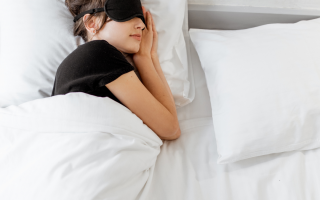If you’re like most people, you’ve likely dealt with anxiety in one way or another. Maybe it’s that nagging feeling in the back of your mind that something is going to go wrong, or the panic attacks that leave you feeling like you can’t breathe. But what is anxiety, and what are the signs and symptoms?
Anxiety is a general feeling of unease, often associated with cold sweats, irritability, lack of focus, restlessness, worry, and fear. These can be mild or severe depending on the situation and circumstance. However, there are many ways to manage these symptoms, with each varying in suitability to different individuals. Some may prefer using cannabis products that can be purchased from mygreensolution or similar dispensaries. Others choose to practice mindful meditation and breathing exercises. And many resort to prescription medicines to ease the tension.
In this blog post, we’re going to take a look at anxiety from a variety of angles – from signs and symptoms to treatments and therapies. We’ll also provide some tips on how you can deal with anxiety on your own, as well as advice from mental health professionals on how to get the help you need. So whether you’re new to anxiety or have been dealing with it for years, read on and learn everything you need to know about this common disorder.
Signs and Symptoms of Anxiety
If you’re feeling anxious, you may be experiencing one or more of the following signs and symptoms:
- Muscle tension
- Restlessness
- Fatigue
- Nerves racing
- Trouble concentrating
- A feeling of dread or fear
- Insomnia
- Heart palpitations
- Chills or a fever
- Anxiety attacks
- Difficulty swallowing or speaking
- Racing thoughts
How to Manage Anxiety
Effectively managing anxiety is crucial, given its significant impact on daily life. Various coping strategies exist, including the potential relief offered by consuming cannabis products, which can be sourced from a weed dispensary emeryville or similar establishments. Wondering how this can help? Cannabis can interact with the endocannabinoid system, thereby promoting a sense of calm and reducing stress and anxiety. Additionally, engaging in deep breathing exercises and other techniques can contribute to a tranquil state. That being said, it’s essential to explore personalized approaches to enhance overall well-being. While there’s no one-size-fits-all solution, the below-mentioned strategies can be valuable in navigating anxiety.
- Identify your specific symptoms. The first step in managing anxiety is to identify the specific symptoms that bother you the most. This can be challenging because some people experience a range of symptoms, while others only experience a few specific ones. However, by focusing on what bothers you the most, you can start to develop strategies for dealing with those symptoms.
- Establish healthy coping mechanisms. One key component of managing anxiety is establishing healthy coping mechanisms. This means finding ways to deal with your anxiety that don’t involve using harmful substances or behaviors (like smoking cigarettes or using drugs). Some helpful coping mechanisms include exercise, meditation, yoga, journaling, talking about your feelings with trusted friends and family members, and seeking out counseling or therapy if needed.
- Avoid stressing out unnecessarily. In the intricate puzzle of anxiety management, steering clear of stressors emerges as a pivotal strategy. Stressors can act as catalysts, prompting the release of cortisol-a hormone intricately linked to stress and anxiety. This can significantly exacerbate underlying anxiety disorders, creating a cycle that’s challenging to break free from. To curtail this cycle, proactively identifying and mitigating potential stressors assumes paramount importance. When we find ourselves amidst stress, our body’s physiological response intensifies anxious feelings. Thus, recognizing and addressing stressors at their roots becomes a proactive approach. This involves identifying triggers such as demanding workloads, relationship dynamics, or personal commitments. By acknowledging these stressors, we empower ourselves to take control and explore effective strategies for managing them.
- Seek professional help if needed. If you find that the strategies outlined in steps 2 and 3 aren’t helpful in managing anxiety, it may be worth considering seeking professional help. There are a variety of options available, including counseling, therapy, or medication. Whichever option you decide on, make sure to speak with your doctor about the risks and benefits of each before starting treatment.
- Consider opting for herbal supplements: Herbal supplements, including Valerian Root, Passionflower, Kava, and Hape, can offer the potential to address anxiety naturally. Valerian Root’s calming effects stem from its influence on the neurotransmitter GABA, while Passionflower gently eases anxiety by increasing GABA levels. Kava, long used in the South Pacific, can also interact with GABA receptors, promoting relaxation. Hape, which can be sourced from shops like Tribu Spirit (check out their site at https://tribuspirit.com/), is a blend of plants and herbs. It can also be a viable option in combatting anxiety. Consultation with a healthcare professional is crucial to determine their suitability, potential interactions, and proper dosage.
- Keep a positive outlook. Finally, one of the most important steps in managing anxiety is maintaining a positive outlook. This means avoiding negative thoughts and images about your anxiety disorder and focusing on the things that make you happy. By doing this, you can help reduce the overall stress of your anxiety disorder and help maintain your overall well-being.
Will Medications Help?
Medications can help treat different types of anxiety disorders in a variety of ways. For example, antidepressants can boost serotonin levels in the brain to help reduce feelings of anxiety and depression. Anticonvulsants can also help regulate brain chemicals that contribute to anxiety disorders. In some cases, medications may need to be combined with psychotherapy or other treatments to be most effective.
If you’re having trouble managing your anxiety symptoms or if your anxiety is severe enough that it’s impacting your daily life, talk to your doctor about whether medication might be an option for you.
If you find that you are struggling with anxiety, it is important to seek out help. There are a variety of resources available to those who need them, such as online forums and counseling services.
If you find that the symptoms of anxiety are impacting your quality of life in a negative way, it may be worth considering medication or therapy. Be sure to talk with your doctor about what options might be best for you and make an appointment as soon as possible so that you can begin the process of managing your anxiety.




